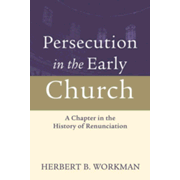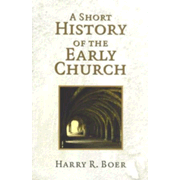FOR THIS Nineteenth Sunday after Pentecost, we find that
our text in Luke challenges the apostolic Church to endure and grow. Always,
but especially during times of duress, we are called to have faith in our
deliverance given by God….
And he (Jesus) told
them a parable, to the effect that they ought always to pray and not lose
heart. He said, "In a certain city there was a judge who neither feared
God nor regarded man; and there was a widow in that city who kept coming to him
and saying, 'Vindicate me against my adversary.'
For a while he refused; but afterward he said
to himself, 'Though I neither fear God nor regard man, yet because this widow
bothers me, I will vindicate her, or she will wear me out by her continual
coming.'"
And the Lord said, "Hear what the
unrighteous judge says.
And will not God vindicate his elect, who cry
to him day and night? Will he delay long over them?” I tell you, he will
vindicate them speedily. Nevertheless, when the Son of man comes, will he find
faith on earth?" (Luke 18:1-8)
 |
Persecution in the Early Church: A Chapter in the History of Renunciation By Herbert Workman |
Teaching Endurance…
In continued answer to the disciples’ request to increase
their faith, Jesus taught the Church
about endurance. In our Lord’s teaching, according the episode found in Luke, the parable contrasts legalistic
wrangling between the worldly powerless… and the revealed Church as empowered by
God.
We first note that the
text we read is found only in Luke. This hints that several
possibilities exist for its singular inclusion in this gospel. Since Luke’s
witness is thought to be written circa 85AD, we consider that the parable text
may have come to that community through the power of the Holy Spirit from a late first-century
source. We also cite that there is no such parable or text in the Gospel
According to Saint Matthew, gleaned from the so-called “Q” document, though it
is thought by most scholars that Matthew was written during the same decade.
This fact looms large for our discussion.
While it may be
argued that that the writers of both Luke and Matthew may have had the same
source available in “Q”, the Matthean writers may not have had room on the available parchment for its inclusion. Also, and more importantly, we may also guess that the
parable was not as relevant to the Matthean community’s societal or political
positions.
Given these things, I offer
that if the latter case is true, the parable’s appearance may support a claim
that the story was specifically relevant to the Lukan community… and addressed its
burdens within its particular geographic ministry. You see, that community was
historically spread across the Greek provinces; whereas, Matthew’s churches were
located as centered in Syria.
 |
A Short History of the Early Church By Harry Boer / Wm. B. Eerdmans Publishing Co. For readers who want a brief yet reliable introduction to the history of the early church as well as for those who are looking for a quick review of the period, this volume furnishes a concise overview of the key events, figures, controversies, and councils essential for a proper understanding of the first seven centuries of the Christian church. Harry R. Boer provides background on the world into which the church was born, surveys the life of the church from the ministry of Jesus until 600 A.D., examines the effects of persecution and heresy on the church, explains the role of several key church leaders, and focuses specifically on the church's ongoing struggle to formulate proper doctrines of the Trinity and of Christ. Each chapter is clearly outlined and concludes with several discussion questions that enhance the book's use as a study guide for church groups or as a text in courses on early Church history. |
Moving from Unjust to
Just…
In telling the example of the widow, Jesus originally held
up a call for right vindication, retribution and punishment. In the telling, earnest
steadiness in prayer was taught as a character to be valued by the disciples. In
the story, the listeners heard that the widow's earnestness prevailed even with
the unjust judge, even though her persistence could have set him more against
her. The story thus expressed by our Lord was that she literally wore the
unjust man down in her petitioning. However, our Lord impressed upon
the disciples that earnest prayer was pleasing to God. Jesus thus taught
that such response from an unjust man who does not even fear God, stands in paltry relation to the judgment that shall be poured out from God who is indeed Righteous.
This message related, highlights the disparity between that which
influences human social powers over against the works of God.
As told by Jesus, the
parable ended with the repeated questioning echoing as to whether when all
things are said and done... will faith be found upon the earth. Consequently, Jesus
highlighted the importance of continued persistence as a desired quality in the active faith
of the disciples, establishing that they must continue prayers unceasingly… for
surely those requests do not fall unheard or unanswered.
For Luke, the "widow" doubtlessly represented not
only the dispersed Jews of his own audience, but also many Gentile proselytes in
the Church during the late first century. Was it being stressed that these last shall be
found amongst the heard, and their prayers shall be answered since accounts are settled and the kingdom
of God is fulfilled? As we read of the faith of the widow, we see
that she likely represents the early churches to which Luke wrote. This
confirms for us that the word "faith" meant not just a personal
faith, but the faith to be found as a quality needed within the whole body of Christ,
a community which included both Jews and Gentiles.
In other words, this Lukan text contains
a collective prophecy, that coming was a time of such faith apostasy that the truth
of God will have seemed to have nearly departed entirely from the earth. Thus
it was that the gospel writer related through this parable’s telling, that despite
prolonged oppression... God indeed is yet the Truth, Lord and Judge of all.
By his answer, therefore,
Jesus spoke about the enduring character that should embolden all saints of God during
trying times. These traits held up by this parable, included only in Luke, stand staunchly
as prophetic in our own day. As a pastor I emphasize
that this knowledge is based predominately on a right comprehension of sin according
to scripture, and a soulful request for expressed faith in the validity of Jesus’
sacrificial atonement. Let it be known that the receiving of
such understanding comes to us only through the Holy Spirit. History reveals that only through the Spirit’s empowerment that the churches to whom Luke wrote endured through persecutions. Indeed, travesties from both societal and governmental justice
assailed the early Church from before the decades of Luke’s writing, through a time beyond the reign of Constantine. Today we yet find that these same persecutions persist in many nations around the world, regardless of our modernity or economic status.
Prayers and
Proclamation!
In these modern times, therefore, I say to you that we of
the Christian Church are called to take sight of the animosities which
violently oppress evangelical outreach in such places as Africa, Syria, and more developed, modern cultures such as the United States. We need to recognize that demons may undermine the
right interpretation of scripture even more in culturally-developed nations. Here the Church must stand firmly against incorrect progressive and socialist misinterpretations of our Lord’s
ministry.
As the Church in modern times therefore,
let us be like the poor widow and place before God persistent prayers made in
petition against those that attempt to further close doors. News sources reveal that latent and blatant persecutions exist toward Christianity. Many modern minds are closed and barred not only against Christians who are
imprisoned and murdered in such as Africa, Syria, Iraq and Iran, but are also tightly bolted against right Christian
proclamation within “first world” superpowers. Take note that these demonic forces rail
incessantly against our exclusive gospel proclamation of salvation through
Christ alone. In the United
States, for example, we see that political personalities and powers repeatedly shield themselves with a flimsy protectionism
erroneously granted through Constitution misinterpretation, one which favors complete political separation of Church
and state. Consequently we of the Church need to find within
this lesson that our witness is prayerfully found in the true... but hard-oppressed apostolic Church.
Historic faith persistence needs
to be uplifted. We need to keep pounding against the doors of injustice, and know
that the judgments of Almighty God shall prevail beyond this world’s striving. We
need to cry out “Blessed is He who comes in the Name of the Lord” as we continue
to proclaim the Truth that is told in the gospels. We need to gather faithfully and plead before our
Savior again as scripture declares, “Let the Son of Man come to find faith upon earth.”
.


No comments:
Post a Comment